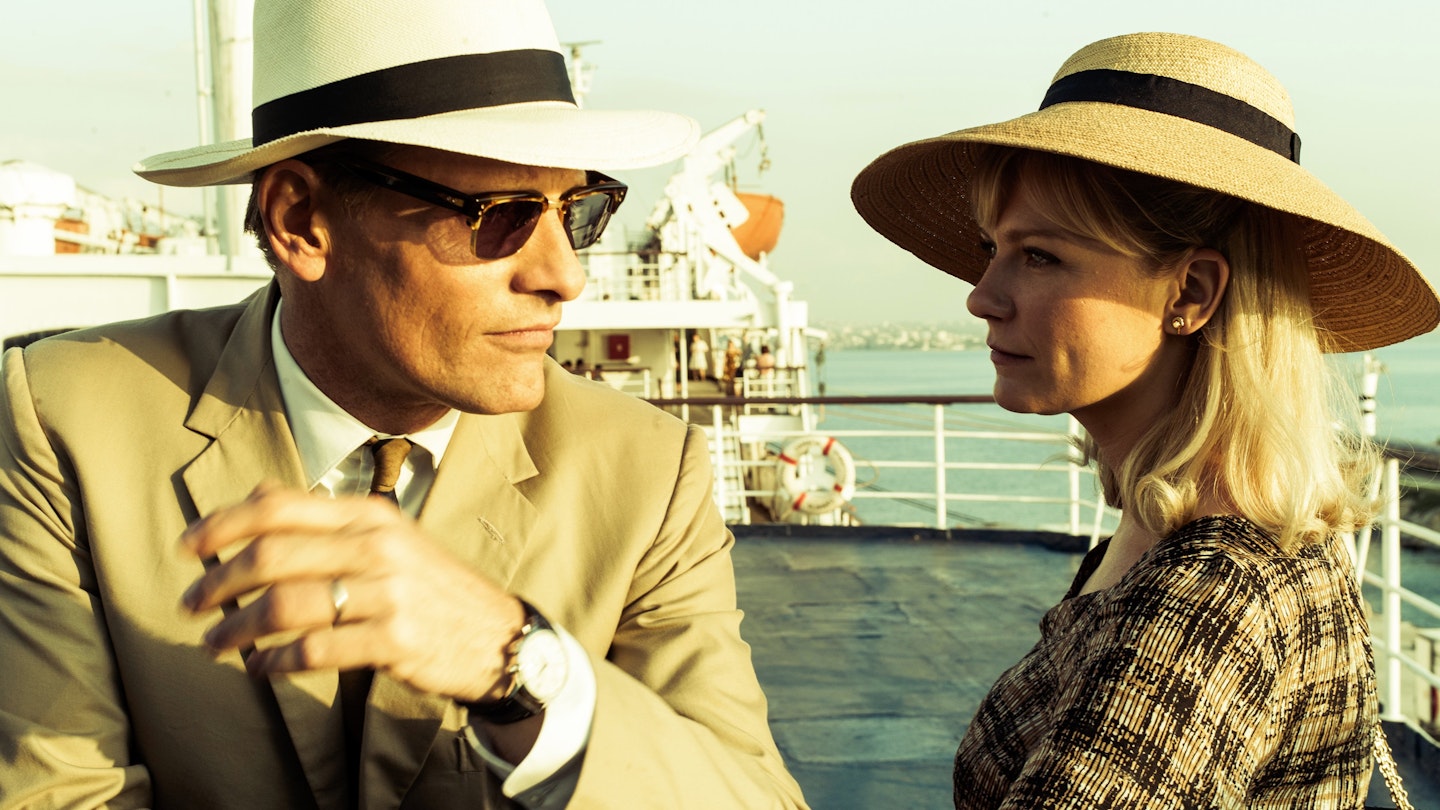Oscar-nominated screenwriter Hossein 'Hoss' Amini (Drive, The Wings Of The Dove) has graduated to directing duties with The Two Faces Of January, an impeccable, clammy adaptation of Patricia Highsmith's '60s-set thriller. It's a none more old-fashioned character piece - in the best sense - that follows gadflies and tricksters around the sunburnt edges of the Mediterranean and into a claustrophobic moral maze. As Amini reveals, its influences and inspirations include a selection of past masterpieces drawn on to help find the look, style and tone of his film. The director talked Empire through ten films to add to your download list.
René Clément's supremely stylish take on The Talented Mr. Ripley pitched French superstar Alain Delon into the role of American gadabout Tom Ripley. Ripley, a man whose moral compass wouldn't get him as far as the end of the road, would later be played by Dennis Hopper, Matt Damon and Barry Pepper, but, for Amini, Delon's version is definitive.
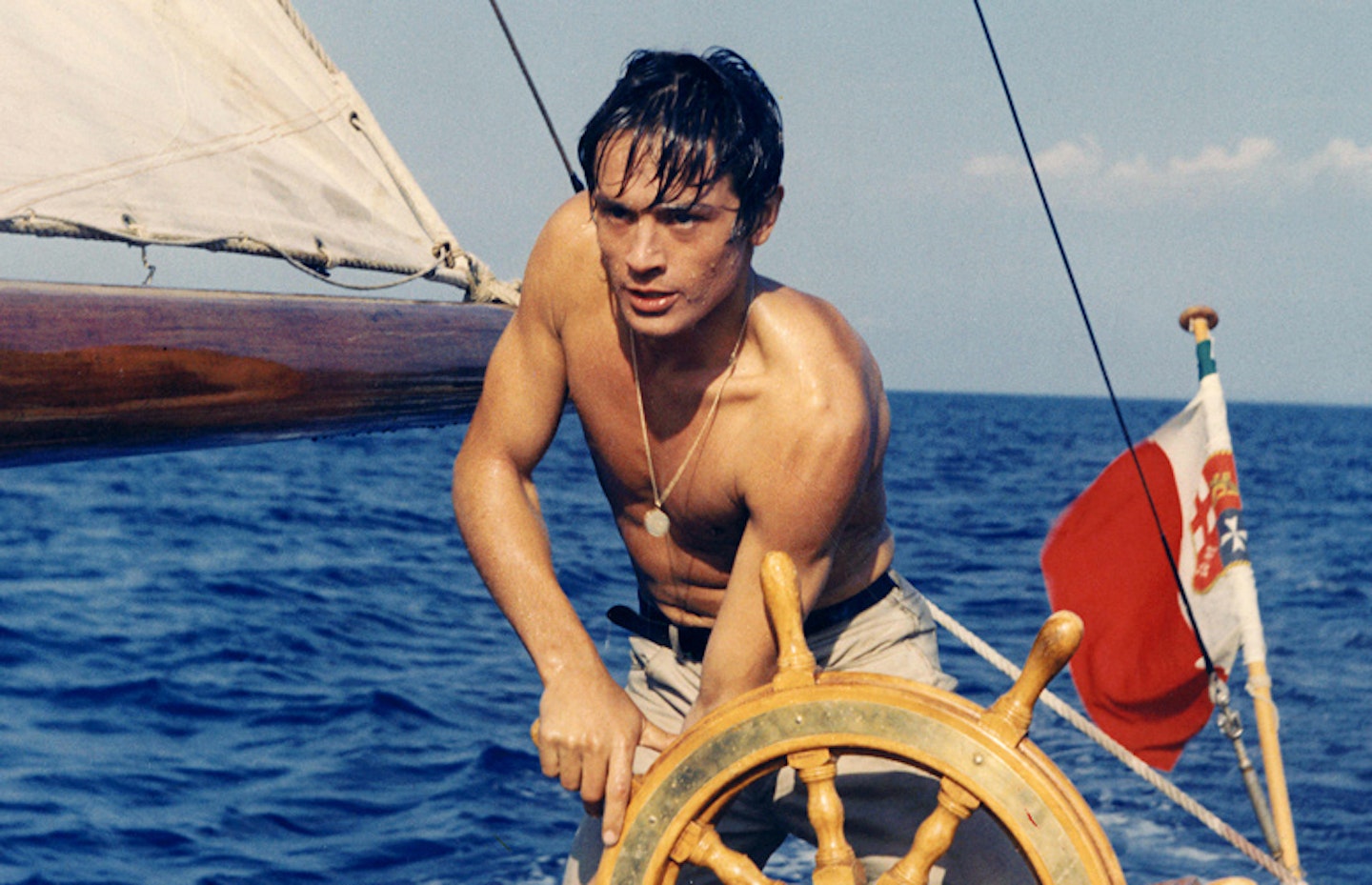
"This is my favourite Highsmith adaptation and the one, I think, that best captures her spirit. It's slightly messy, both in terms of the storytelling and the camerawork, and has this ragged quality, which I think Highsmith's writing has. The beautiful blue sunshine looks fantastic. Alain Delon and Maurice Ronet (who plays the Dickie Greenleaf character) are probably the two handsomest movie stars ever. It's not as clean and polished as The Talented Mr. Ripley, but it has a real energy and menace, and Ripley in this one is much more of a psychopath. I watched it a hell of a lot making The Two Faces Of January. We borrowed lots of the period detail."
A noir slathered in SPF30, Chinatown, bleak-as-tundra ending and all, is at once old-fashioned and modern in its depiction of corruption and moral decay. It's also a masterpiece of collaboration, with John A. Alonzo's photography and Jerry Goldsmith's score added further layers of majesty to Robert Towne's screenplay.
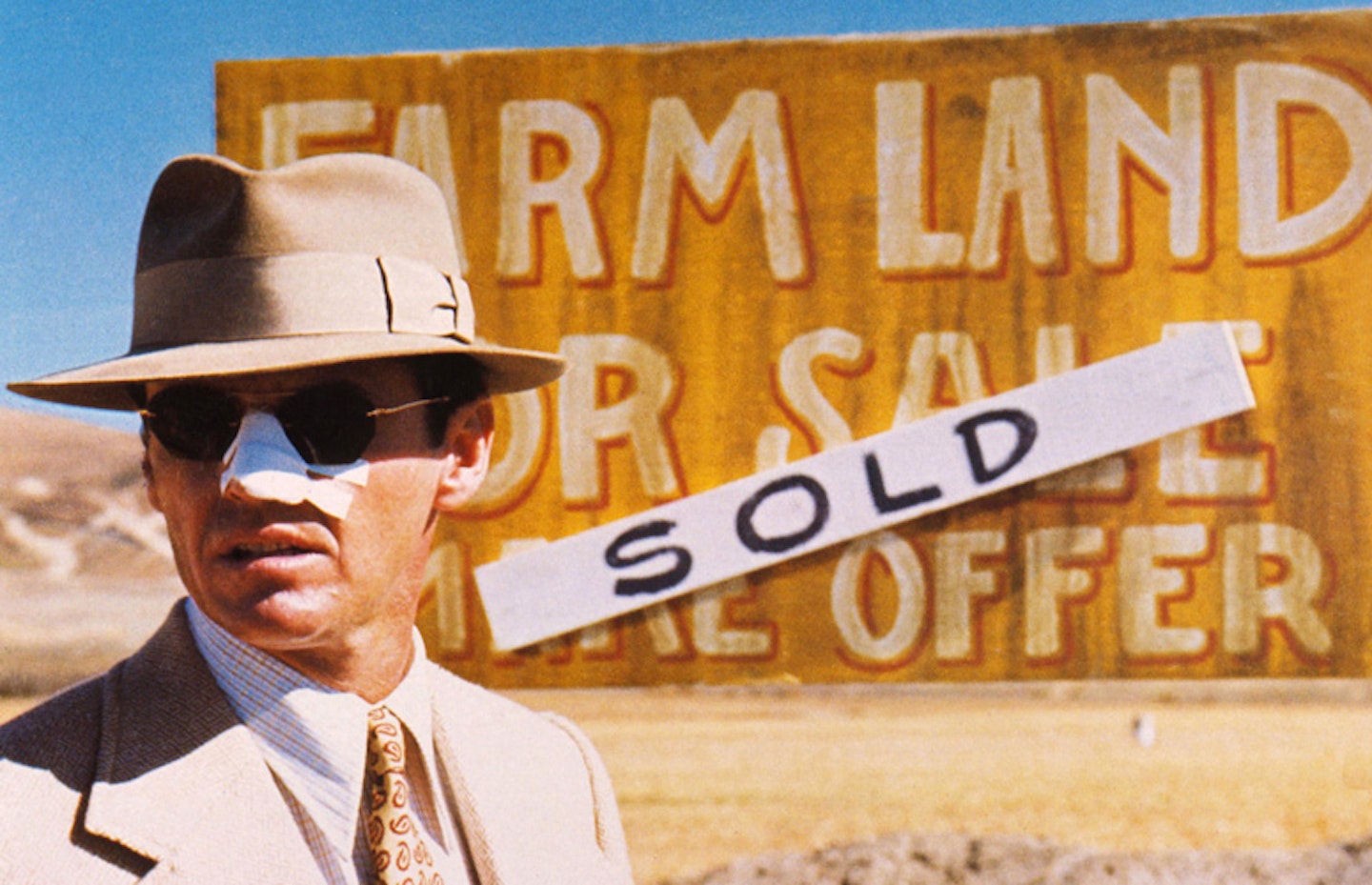
"I first saw this in the early '80s and, after Vertigo, it's my second favourite film. It's definitely the most labyrinthine, brilliant thriller plot I've ever read. Screenwriting gurus teach it as the perfect script in terms of layering and foreshadowing, but more than that, it isn't unafraid to go in completely unconventional directions. Even thought it's a very classical piece, the characterisation is so modern and has Roman Polanski's very quirky, dark sensibility. It's the best whodunnit in movies."
*Michael Mann's love of big, operatic tussles between men of substance reached its apogee in Heat's famous coffee shop scene. In a brief face-off, Robert De Niro and Al Pacino, the only men on Earth who could make the ordering of a soy milk frappuccino into something elemental, remind us that cop and robber are two sides of the same coin. *
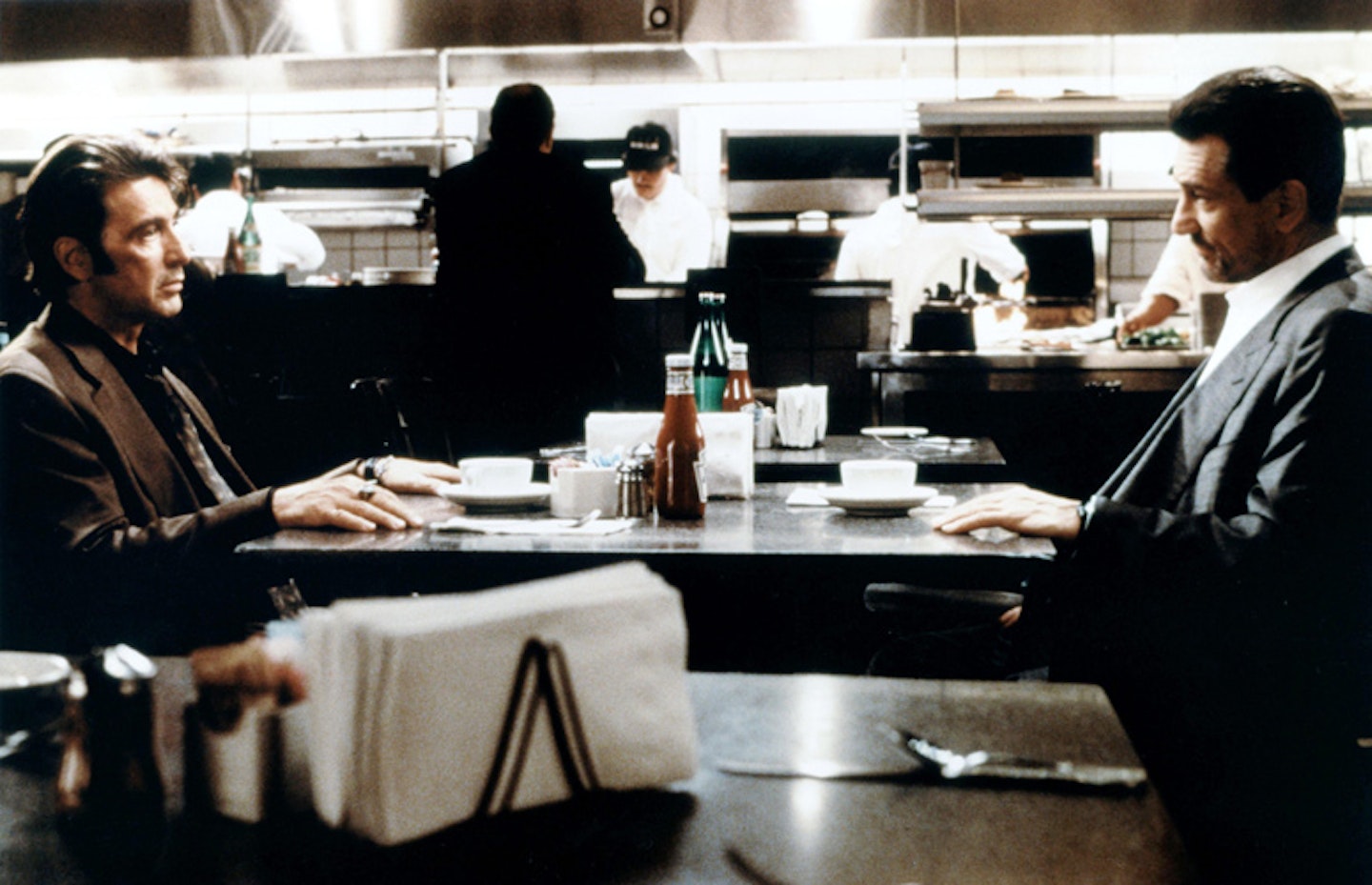
"There's something so mythical about Heat. It's like a Western: the good guy and the bad guy who are two sides of the same coin and have to have a showdown at the end. It takes me back to when I was a small boy looking up to these heroic figures. As a first-time director, I was incredibly nervous about using multiple cameras, but the only time we used two cameras was in the Istanbul bazaar scene, because I'd read that Michael Mann had done that in the coffee shop encounter in Heat. You want to capture the reality of that moment for both actors."
*Jules Dassin's underrated noir deserves to stand alongside the likes of Out Of The Past and The Big Heat - or at least sweat furtively next to them. Richard Widmark's helter-skelter chases across a moonlit London, culminating in an indelible Hammersmith denouement, were a reference point for Amini.

"This is one of the great films noirs. I love that the hero is a loser: he's a conman who is in over his head. He's the villain and the victim all at the same time - like (The Two Faces Of January's) Chester MacFarlane - a wiseguy jack-the-lad who finds it all catching up with him. The great chase scene at the end was an inspiration for the end of my film: it's almost like these characters are not being chased by real people, but by what they've done. Like Viggo, Richard Widmark isn't afraid to play ugly or desperate. A lot of actors want to look great all the time, but Widmark has the ability to play losers. He gives great snivel."
*Set across the Med from The Two Faces Of January, Jean-Luc Godard's masterpiece stokes the embers of a dying love affair between a beautiful woman (Brigitte *Bardot) and her screenwriting husband (Michel Piccoli), with Jack Palance's movie mogul as the stoker. Hauntingly scored by Georges Delerue and set on the cliffs of Capri, it's one of Godard's most emotional films and arguably the worst date movie ever made.
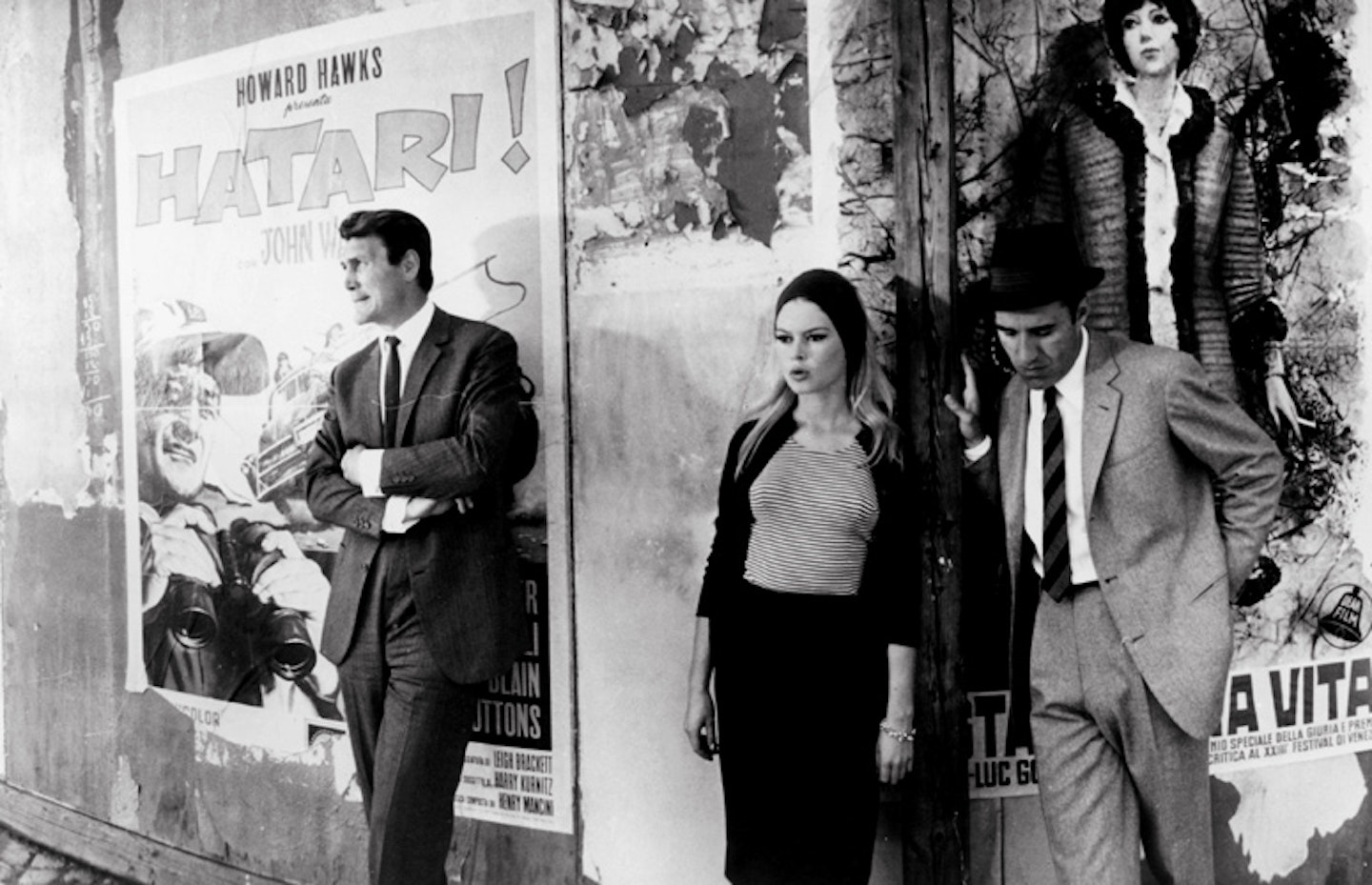
"There's something about being in the Mediterranean climate and being surrounded by these harsh, timeless landscapes and combining them with '60s styles. This is another story about a couple breaking up, with a score I really love, and lots of moments communicated without dialogue. In fact, the films I tend to like don't have a lot of dialogue, which I suppose is strange for a screenwriter. Of course, there's more to screenwriting than dialogue. Someone once said to me, 'You must have been really well paid for Drive, you only wrote 15 lines of dialogue.' Not film readers, obviously, but in the general public people think that all you write is the dialogue."
Michelangelo Antonioni's love trilogy - L'avventura, La Notte and L'Eclisse - may be the last word in glacial art cinema to some, but, argues Amini, few filmmakers have a better grasp of the cadence of relationships, especially dying ones. Despite an almost total absence of robots, aliens and killer sharks (a killer shark is mentioned), L'avventura languidly communicates the universe's mysteries through the eyes of Gabriele Ferzetti and Monica Vitti.
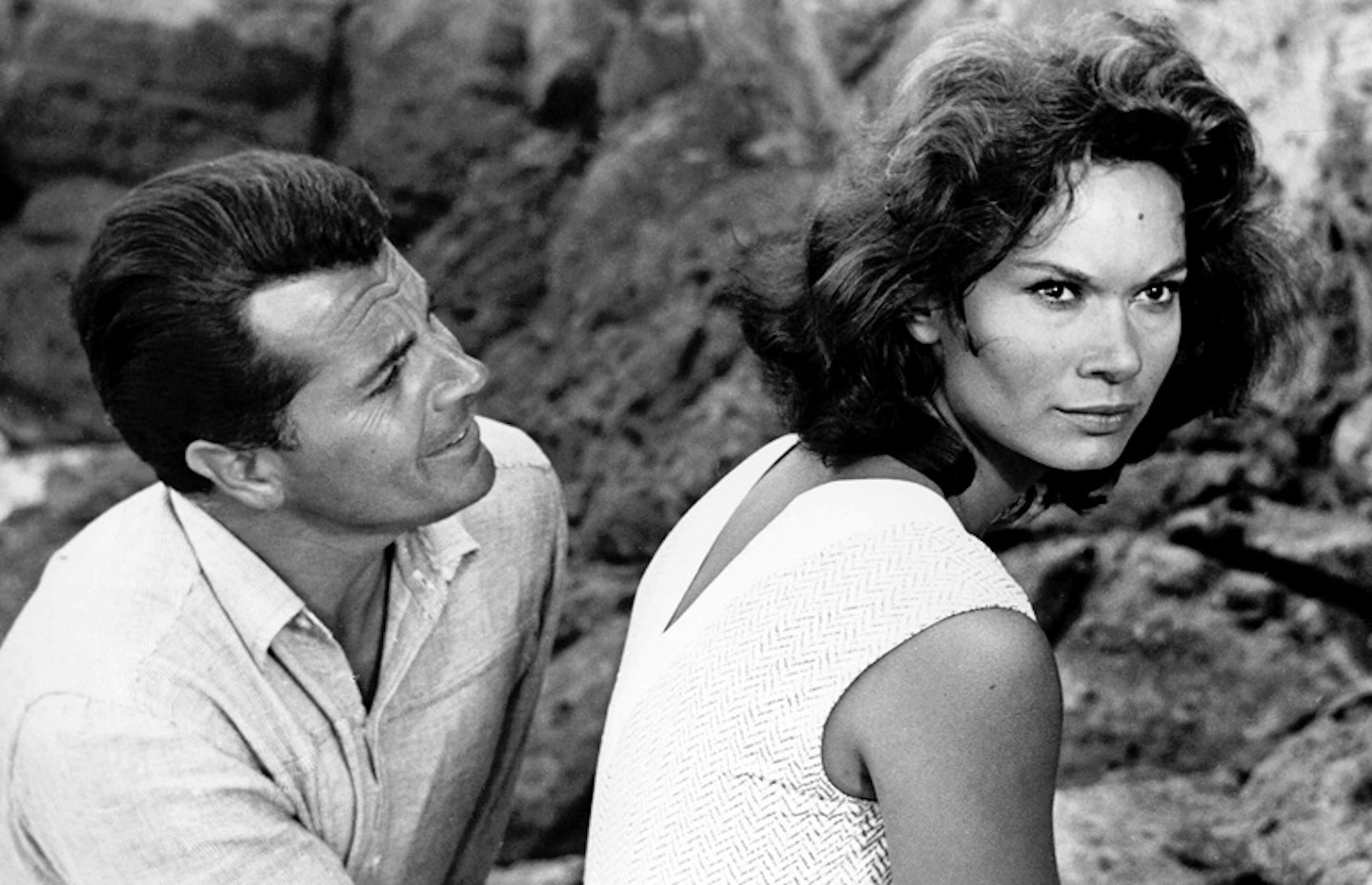
"When I was writing the script I had Monica Vitti in my head for (Kirsten Dunst's character) Colette MacFarland. Kirsten's a very different actress, but I gave her these films to watch because I wanted that enigmatic quality that Monica Vitti has, and because of the way these three Antonioni films show relationships disintegrating with looks or turning away from someone. It's never through dialogue; always body language. I really started to appreciate Antonioni in my late forties. I really looked at his blocking of actors in the frame. He's a complete master of that."
Agnès Varda's New Wave classic tackles an hour-and-a-bit in the life of a young singer, Florence 'Cléo' Victoire, as she faces up to some potentially grim news from her doctor. The film's costumes and design, foreshadowed by a sumptuous Tarot card title sequence, were a valuable period reference for Amini and his costume designer Steven Noble.

"This was a key reference for our costumes and hair styles, and that whole '60s chic. Kirsten (Dunst) is a real fashionista and she'd seen it before. If Empire readers like French New Wave films this is very much of that period, with lots of jump cuts and experimental filmmaking. Godard and Trauffaut's films used pulp stories [as their source], but Varda's is a much more personal story about a woman who's unhappy with her life. Did I have a French New Wave period? Well, I used to carry a copy of Baudelaire's Flowers Of Evil in my pocket when I was 18 (laughs). It was incredibly pretentious and my friends still tease me about it."
The Two Faces Of January is out now*.
The most fun you can have without buying your own crop duster, Amini calls Hitchcock's timeless caper his "favourite road movie ever". Featuring planes (natch), trains and automobiles, Hitch's command of pacing and tension make it a blueprint for thrillers of all stripes.
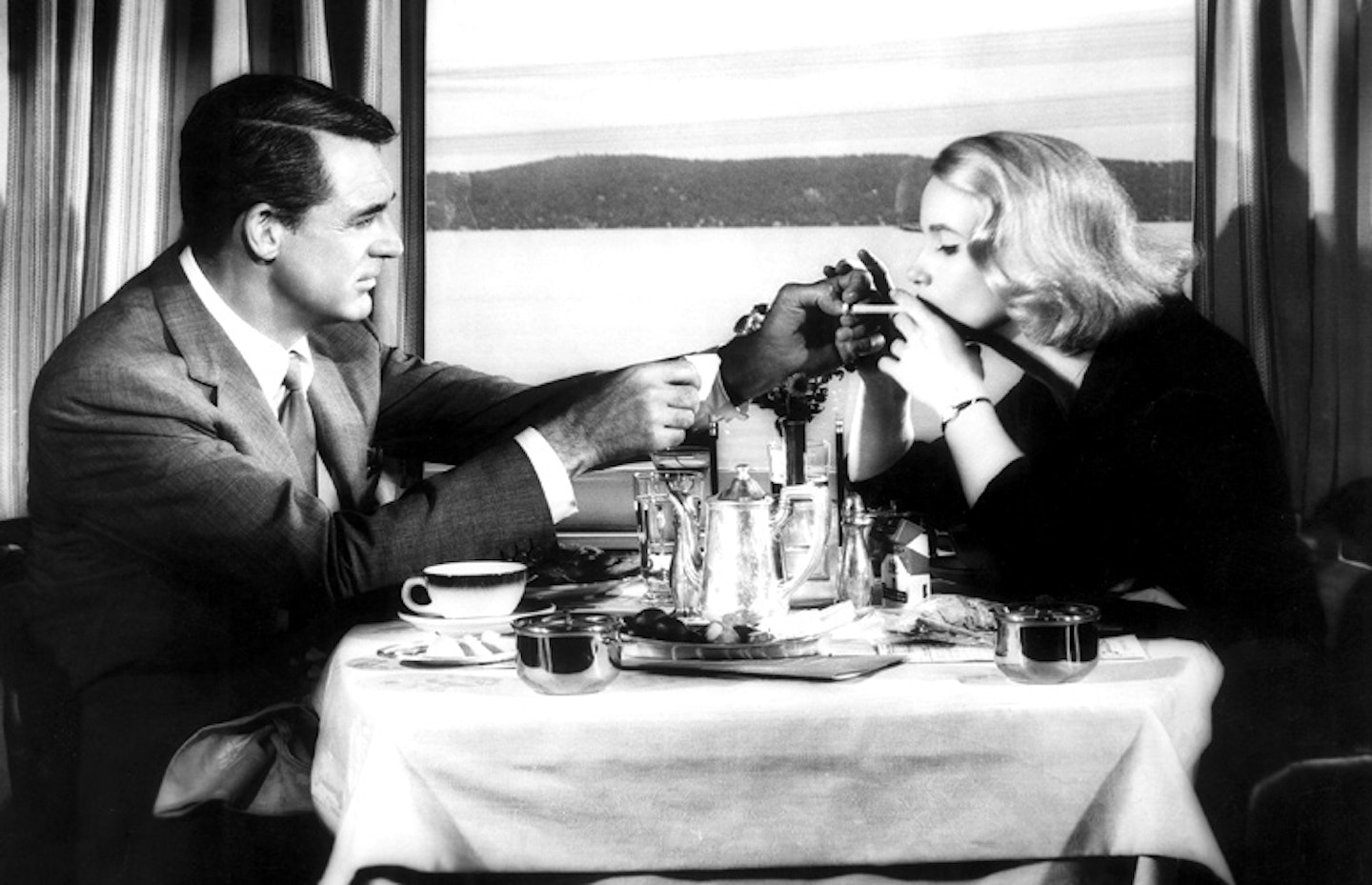
"It was crazily ambitious, but I wanted Two Faces' suspence scenes to feel a little Hitchcocky. I think first-time directors tend to borrow a bit more from directors they admire than more experienced directors, and I loved the way Hitchcock sets up suspence and tension, and puts you in the character's shoes. The dialogue scene when Cary Grant and Eva Marie Saint meet on the train is one of the best I've seen. It's probably the most entertaining of his films, in the sense that it's a thrill ride with a real what-happens-next energy. My favourite Hitchcock is Vertigo, but I'd definitely put this in my top five."
Paul Bowles wasn't wild about Bernardo Bertolucci's adaptation of his novel ("The less about it now, the better," he sniffed in a later foreword), but it's still an affecting exploration of a couple's (Debra Winger and John Malkovich) relationship unravelling under the heat of the Saharan sun.
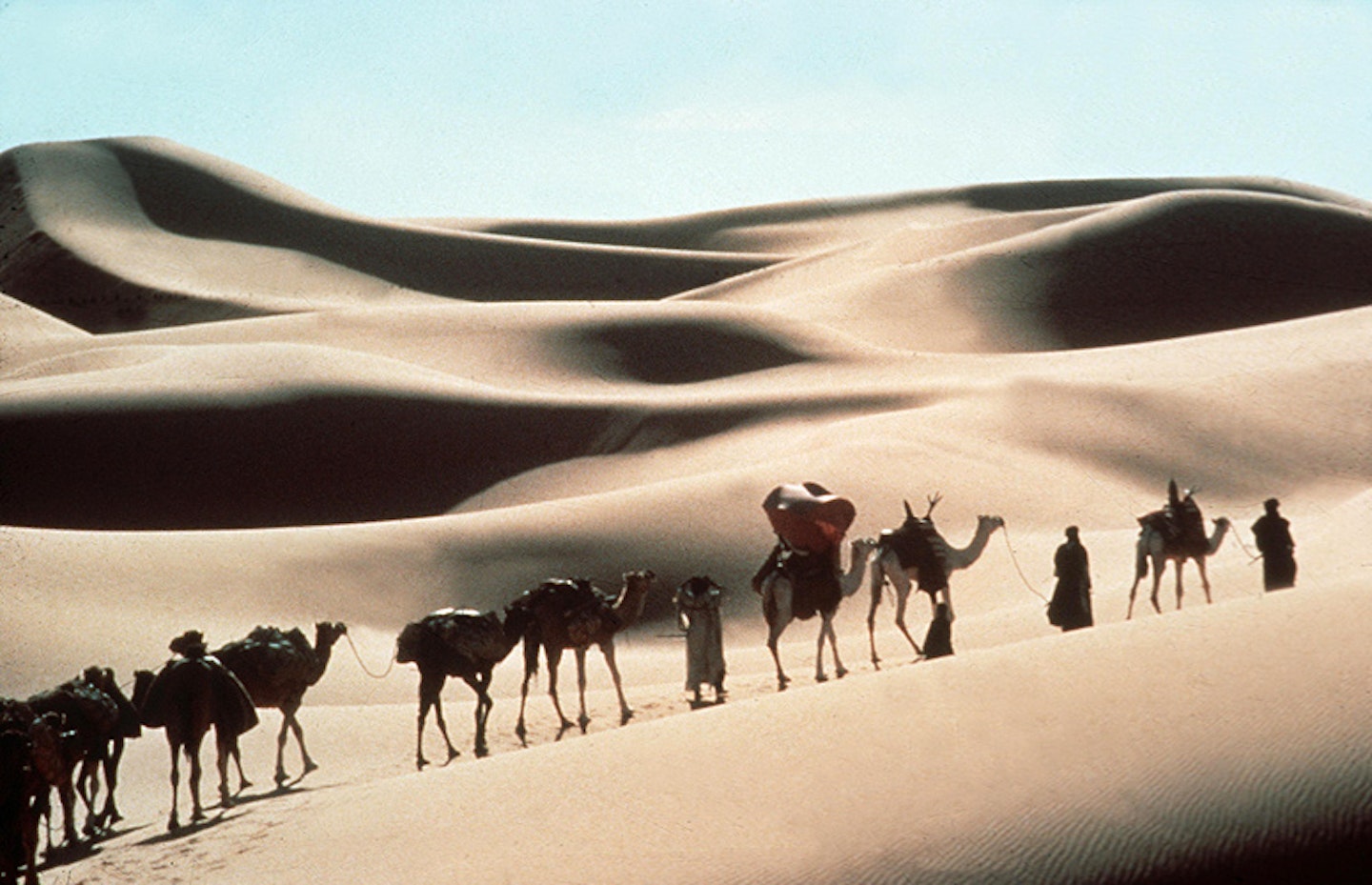
"This is definitely *not *a date movie! But it is unbelievably beautiful. It has these heartbreaking moments between a couple who are still in love and yet breaking up - that period when a relationship is ending but both people can be incredibly tender towards each other. I don't know why, but I always find that period in relationships in movies really moving. There was also something in its crane shots, the dusty bus journeys and the use of the landscape to reflect these people's emotional lives that we drew on for Two Faces's Crete scenes."
*Like The Two Faces Of January, Roman Polanski's starkly monochromatic *kinda-thriller is a three-hander that charts oscillating power dynamics between two men and a woman. The violence is mostly psychological - think Jules And Jim And Sharpened Shiv - but the primal struggle makes for captivating and uncomfortable viewing. It scored Polanski his first Oscar nomination (Best Foreign Film).
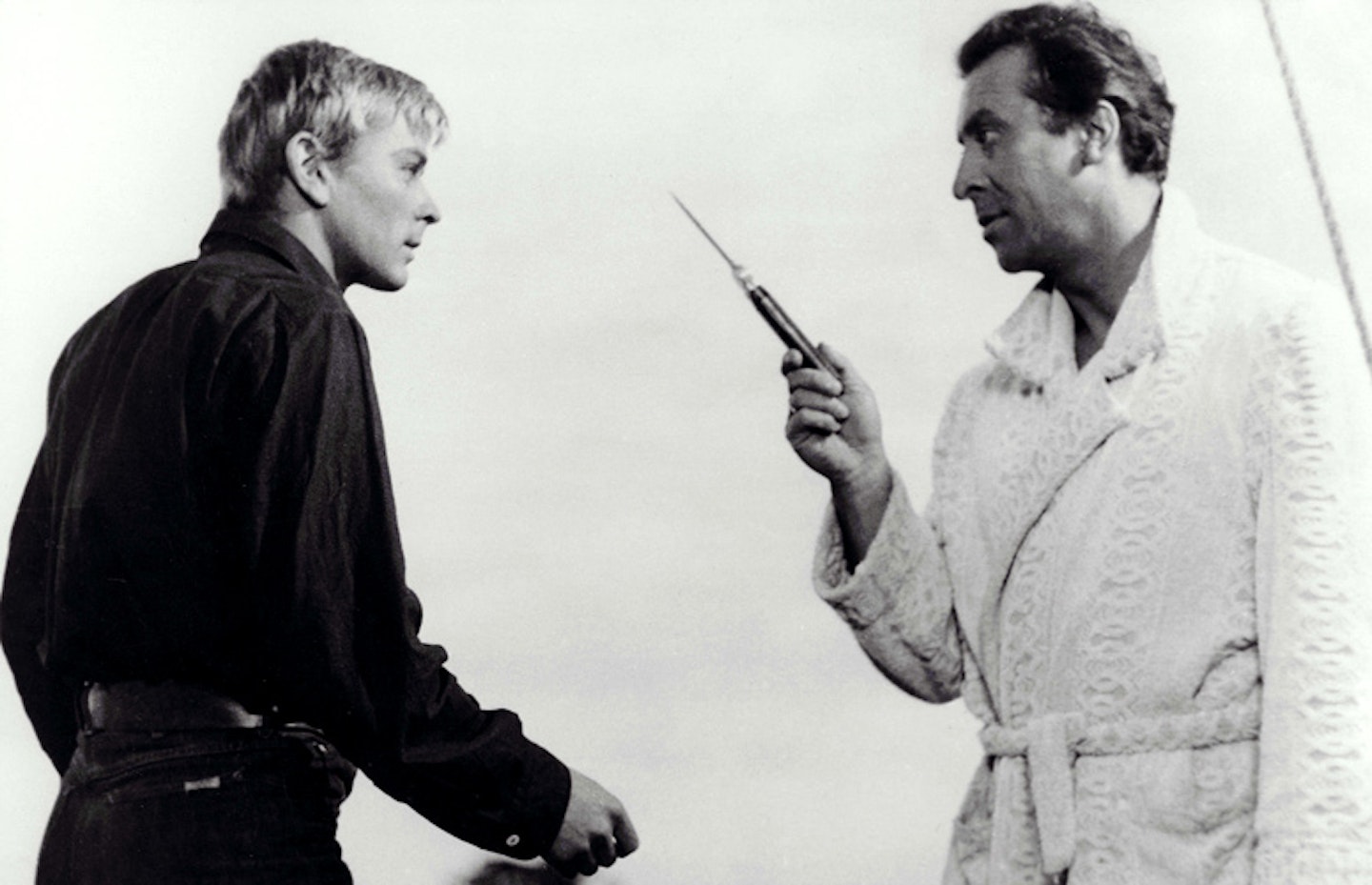
*"Knife In The Water has that jealousy thing that we borrowed from, and [the theme] of a man trying to impose himself on another man... how quickly showing off in front of a woman spirals into this deadly duel. There are weird undercurrents that I recognised from the Highsmith's The Two Faces Of January: of competition, jealousy and paranoia that you get a lot in relationships."
